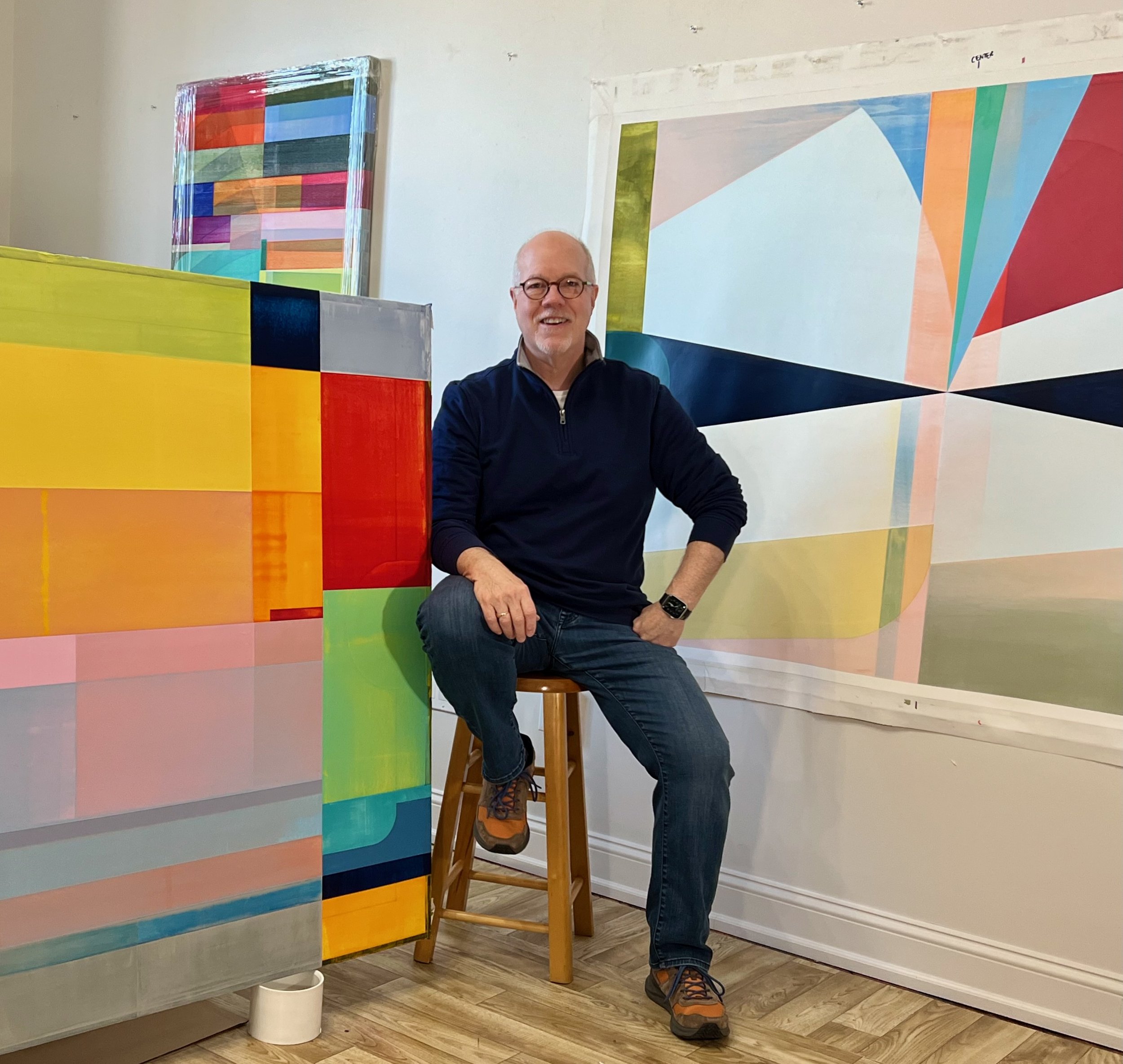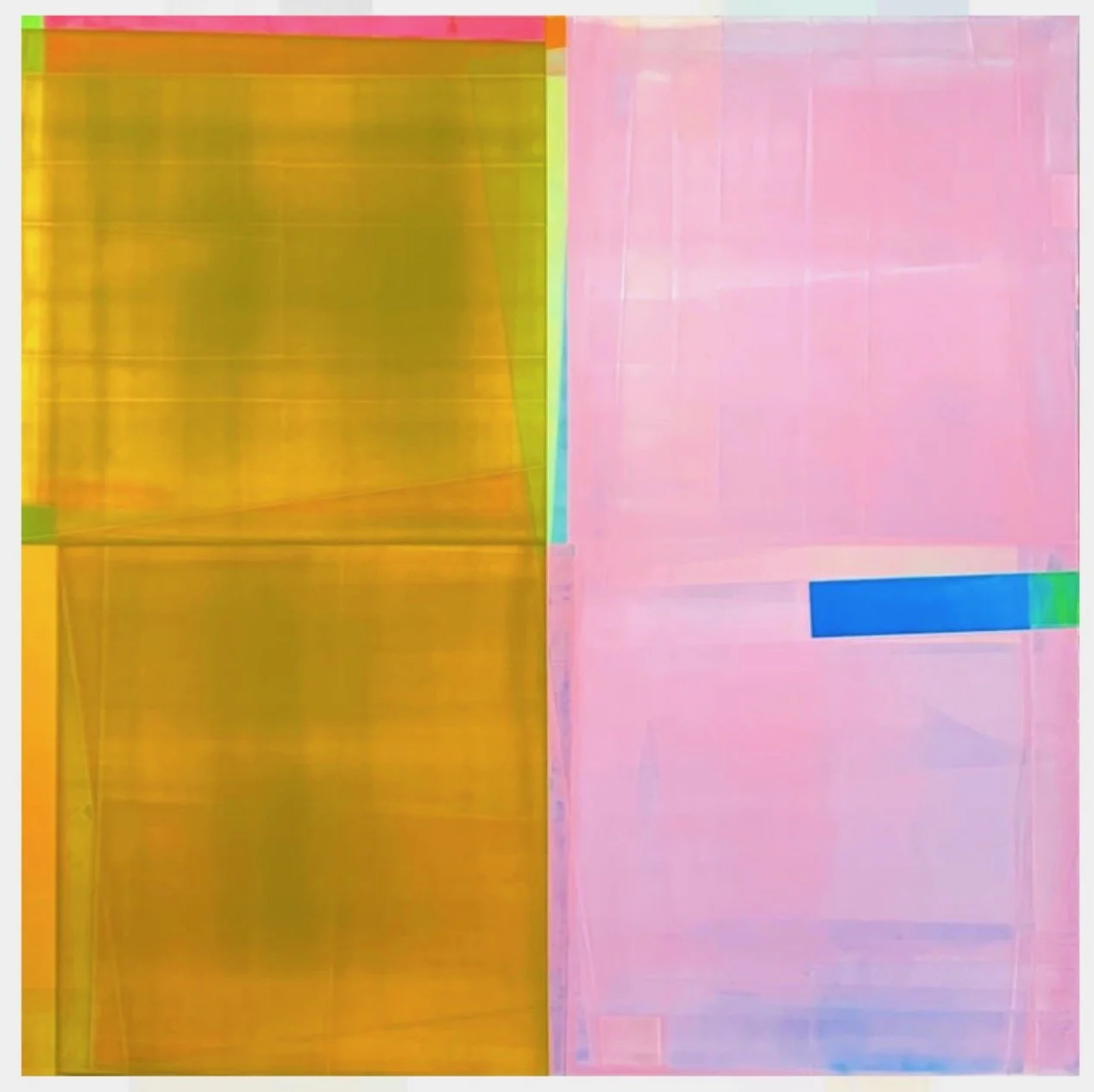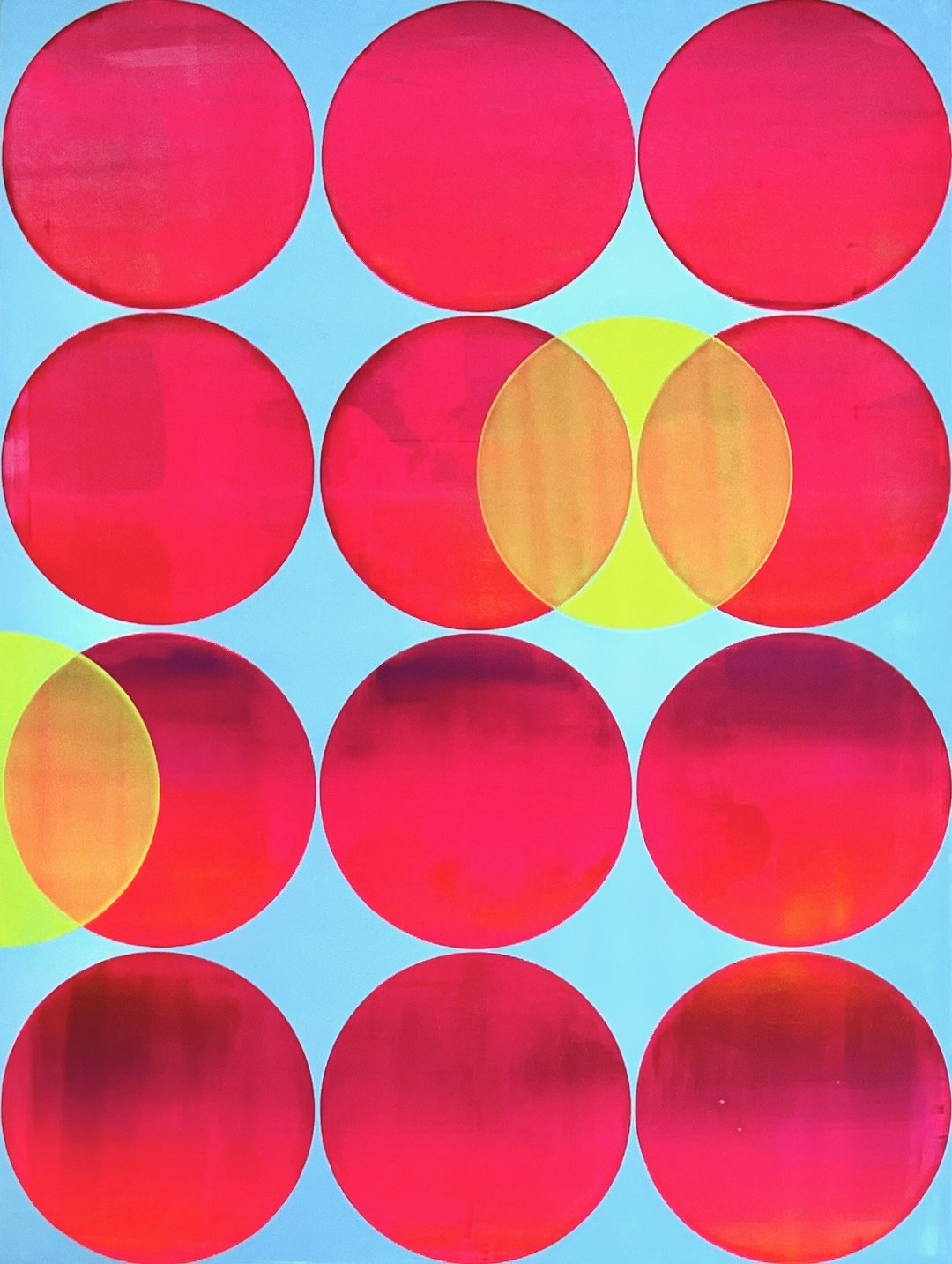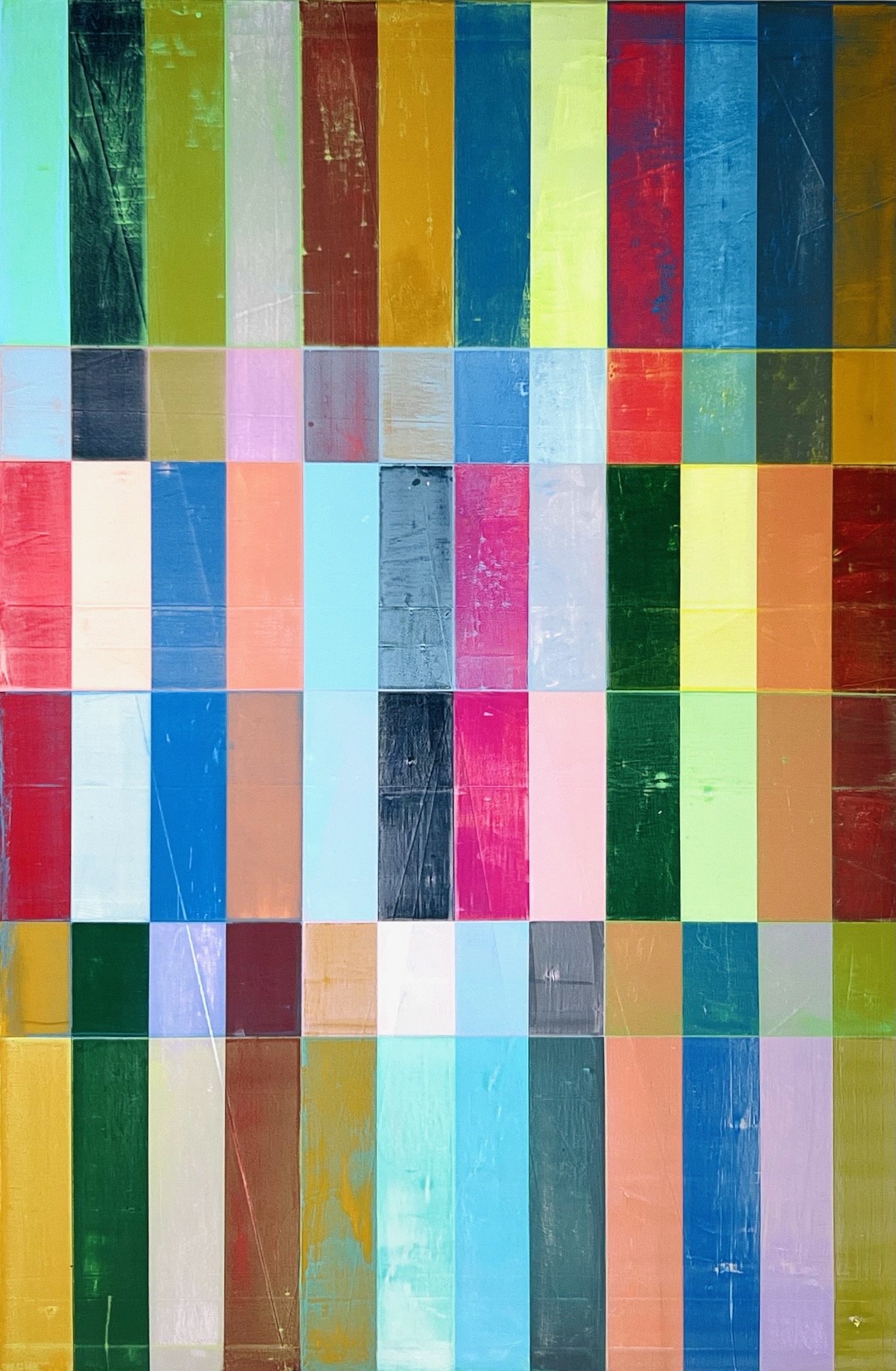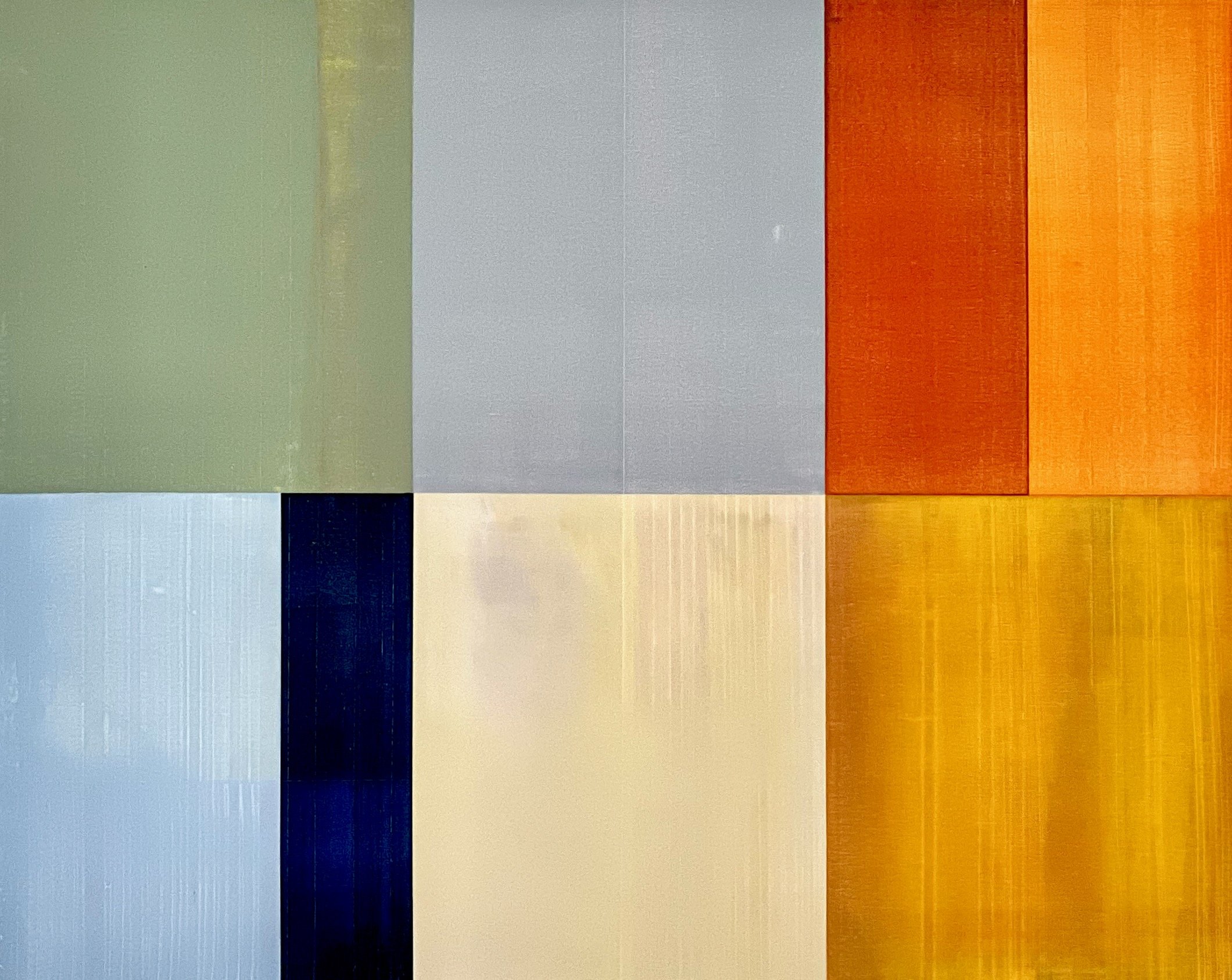Tom Owen
Newport, Kentucky
Website
www.tomowenfineart.com
Social Media
Instagram
How would you describe your work?
My work has evolved over time, moving from organic shapes that floated on the canvas to more brightly colored minimalistic, geometric shapes and forms that fill the entire space and substrate.
What inspires you?
I am inspired by the colors and landscapes of the United States midwest where I grew up. The wide and fertile river valleys, limestone bluffs, and farmlands have become a visual language of sorts that I abstract and distill down to minimalist forms. Subtle texture and layering mirror my own psychological experiences of the subject.
Can you speak about your process?
I use flashe emulsion, a highly pigmented, water-based paint applied in multiple layers. I use squeegees and a variety of straight edges to pull and scrape large forms onto cradled gesso wood panels or stretched canvases. Within these forms is a subtle interplay of color, movement, and depth inviting the viewer to look closer.
How did you become interested in art?
I have been making art all of my life. Growing up I had an endless supply of paper, pencils, and paints always at the ready on a small card table in the corner of the living room. In high school, I took over the family garage as my studio. My father could build anything and my mother was a talented seamstress. From them I learned that if something doesn’t work, you learn from it and keep trying. Seriously, what great parents!
Do you have any favorite artists, movies, books, or quotes?
There are too many artists whose work I love to list here. There are few quotes that I have returned to time again in my practice. Artist and teacher Nicholas Wilton once said, “Frequency is more important than duration.” One has to show up, even if for only an hour, doing the work of art making. It’s a discipline. A second comes from my high school art teacher who frequently said, “There are no mistakes; use what is happening on the canvas to enhance and enrich your work.”
What advice do you have for younger artists?
Not every painting is going to be a masterpiece. Art making is a long-term proposition of learning every day. It is not about a final product, but about the process.

